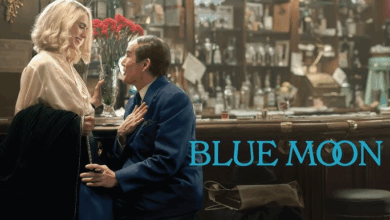Loveable, When the Pain of Love Becomes a Mirror to the Self

Loveable (original title: Elskling) is one of those rare films that stays with you long after the credits fade. From the very first scene, it is clear this is not just a story about marriage or separation; it is a quiet journey into the human mind. Watching it feels like sitting in front of a mirror you did not know you needed. I agree with those who say this film is something you owe yourself to watch. It is not merely a movie; it is an act of introspection.
Norwegian Cinema and the Context
Norwegian cinema has been quietly but steadily growing over the past two decades. Once overshadowed by the more internationally famous Danish and Swedish film industries, Norway has now found its own authentic voice. Its films are often intimate, emotional, and deeply focused on human relationships rather than spectacle or narrative twists.
This is a cinema that values silence as much as dialogue, gestures as much as words. Instead of chasing visual extravagance, it looks for truth in the details of everyday life: a glance, a pause, a confession. Loveable is a perfect reflection of this approach, an interior film where what happens inside the characters matters more than what happens around them.
The Film and Its Craft
Written, directed, and edited by Lilja Ingolfsdottir, Loveable is her feature debut, and an astonishingly mature one. The fact that she edited her own film is telling; this is a filmmaker who wants complete control over emotional rhythm and structure.
The Story
Maria, a forty-year-old mother of four, finds her marriage collapsing. Her husband, Sigmund, wants a divorce, and she is left balancing work, motherhood, and a storm of emotions. The film does not follow the external drama of separation. Instead, it takes us inside Maria’s mind, into her fears, guilt, and her slow confrontation with herself.
Performances
Helga Guren, as Maria, gives one of the most nuanced performances in recent Norwegian cinema. She plays her role with restraint and vulnerability, a trembling smile, a flicker of denial, a moment of quiet fury. Her acting never begs for sympathy. Instead, she invites understanding. Through her, Maria becomes neither a victim nor a saint, but a painfully real human being, just like us.
Editing and Directing
Because Ingolfsdottir also edited the film, the pacing feels organic. The cuts mirror Maria’s emotions: tighter during conflict, slower when she reflects. The rhythm allows the viewer to breathe with her, to feel the push and pull of her anxiety and relief.
Visually, the film is intimate and subdued. Its muted color palette of greys, blues, and soft yellows captures the suffocating atmosphere of domestic life. Light becomes a symbol: colder when Maria feels trapped, warmer when she begins to understand herself. Every frame feels emotionally intentional.
The Director’s Vision
Before Loveable, Lilja Ingolfsdottir made several acclaimed short films, including Everything at Once and Family Portrait. With this film, she emerges as one of Norway’s most promising new voices.
Loveable premiered at the Karlovy Vary International Film Festival, where it won the Special Jury Prize, and later swept multiple awards at the Beijing International Film Festival including Best Film, Best Director, Best Screenplay, and Best Actress. Critics praised her for her psychological precision and empathy, calling the film a triumph of emotional realism.
Ingolfsdottir’s strength lies in her ability to merge structure and feeling, intellect and instinct. She films people not as characters, but as beings trying to understand themselves.
Psychological Analysis
At its heart, Loveable is not about marriage, it is about responsibility and self-awareness.
Maria begins as someone who feels wronged, a victim of circumstances. But as the film unfolds, she starts realizing that not everything can be blamed on her husband or on fate. There is a turning point when she stops asking, “Why did he do this?” and starts asking, “Where did I stop listening to myself?”
This moment, subtle but profound, transforms her. The film never punishes her, nor excuses her. It simply shows how pain can become a mirror, forcing us to see parts of ourselves we have long avoided.
Psychologically, Loveable explores what Carl Jung called the confrontation with the shadow, the process of acknowledging the darker, hidden aspects of our personality. Maria’s journey is not about saving her marriage; it is about meeting herself honestly for the first time.
The movie tells us that every conflict carries two battles: one with the world, and one within. The external one might never be won, but the internal one defines who we become.
Why the Film Does Not Show the Ending
The film ends abruptly. We never learn whether Maria and Sigmund reconcile or separate for good. But that absence of closure is deliberate and deeply meaningful.
Because in truth, it does not matter what happens to their marriage. What matters is what happens inside Maria.
By the end, she has crossed an invisible line from denial to awareness. The story of Loveable is not about them. It is about her. The outcome of the relationship would only distract from the real resolution: Maria’s acceptance of her own flaws and her newfound sense of agency.
This decision by the director turns the film into something larger than a domestic drama. It becomes a reflection on growth itself, on the idea that peace does not always come from fixing others, but from understanding ourselves.
Final Thoughts
Loveable is a film of quiet courage. It does not need melodrama or spectacle to move us; its power comes from truth. With measured editing, exquisite performances, and a deep sense of empathy, it captures something universal, the moment when love stops being about the other person and starts being about the self.
And maybe that is why it lingers. It does not tell us what to feel; it lets us discover it.
Watching Loveable is, indeed, a gift one gives to oneself, a moment of stillness, a mirror, a chance to ask: Where am I in my own story?
Because when the film fades to black, the real ending begins, in us.




